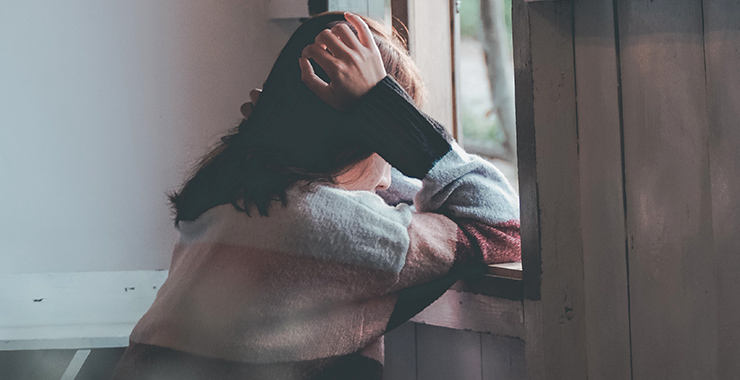For Your Own Good : Self-Isolation
"Depriving people of their liberty for the wider good] needs to be orchestrated carefully."
"If quarantine is essential, then our results suggest that officials should take every measure to ensure that this experience is as tolerable as possible."
"Confinement, loss of usual routine and reduced social and physical contact with others were frequently shown to cause boredom, frustration and a sense of isolation from the world."
"They also became particularly worried if they experienced any physical symptoms potentially related to the infection."
Researchers, King's College London

Researchers whose study was printed in The Lancet, wrote of the psychological impacts of isolation when people are placed in quarantine as substantial and "long-lasting". This, at a time when three-quarters of the globe's countries are diagnosing ever-growing numbers of their nationals with the novel coronavirus, and advising people to self-isolate to wait out the outcome if symptoms are not severe, and others to do so to protect themselves from the scourge increasingly infecting people.
The researchers drew their conclusions from a study they undertook, where 15,000 residents of Toronto agreed to take part in their study by voluntarily self-quarantining for a ten-day period during the earlier outbreak of severe acute respiratory syndrome (SARS) almost 20 years ago, yet another virus that had come out of China, and which had struck Toronto particularly hard, given its large Chinese-Canadian population where the virus was brought back to Canada from trips to China.
Their findings are timely in anticipating large segments of the North American, European and Asian population under COVID-19 watch and containment, as self-isolation has become a very familiar term. A study undertaken in 2004 found symptoms of depression and PTSD in Toronto residents who had been quarantined during SARS, a more lethal disease than the pandemic novel coronavirus now making its way across the globe. SARS killed ten percent of those infected, over double COVID-19's estimated fatality rate.
"It was very much an isolating type of experience [causing people to become hyper-vigilant."
"It it [going to strike] going to be today? Tomorrow? How many more days do I have left in isolation before something happens?"
Dr.Rima Styra, associate professor of psychiatry, University of Toronto
"[People who are isolated or quarantined need to be told [if they can walk their dogs, go out to the barn to care for animals, go for a run or a hike in their local park as long as they stay six feet away from other people and wear a mask, or, is it indoors always, end of story?"
"What about roommates if you've still got to share a bedroom and a bathroom, can your partner still go to the store for you, let in workmen, accept deliveries? Few seem to know what to do if they are advised or ordered to stay home. And if they don't...Tasered, arrested, fined or cited?"
Dr.Arthur Caplan, medical ethicist, NYU School of Medicine
"On the plus side, people can learn how much they don't really need in order to be happy and what is really most meaningful in their lives."
"Being socially isolated in our homes can also paradoxically bring us closer together as a community. We are all in this together and the crisis reminds us how interdependent we are on this tiny pebble of a planet."
"Dangers have always reflected part of the human condition and we adapt, yet the outbreak must be taken seriously] and requires much more competent responses than those so far managed by our leaders."
Dr.Allen Frances, professor emeritus, former chair, department of psychiatry, Duke University
"It's a little unfortunate that some places tend to be moving toward too much isolation and really drastic measures. [It increases panic, worry and] fear of the other [where anyone is regarded as a possible disease vector]."
"Conditions of extreme danger and disruption of public order -- like natural disasters -- typically trigger a lot of solidarity, co-operation, care and spontaneous help between strangers."
Samuel Veissiere, anthropologist, cognitive scientist, McGill University

Labels: Crisis Management, Mental Health, Novel Coronavirus, Self-Isolation

0 Comments:
Post a Comment
<< Home